Singha selected as National Groundwater Association’s 2017 Darcy Lecturer
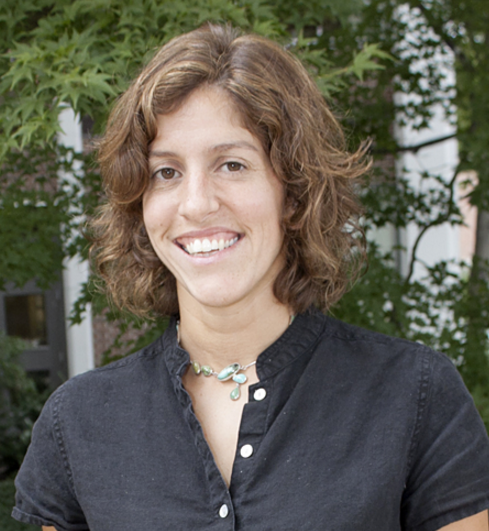
Geology and Geological Engineering & Civil and Environmental Engineering Professor Kamini Singha was selected to be the National Ground Water Research and Educational Foundation’s (NGWREF) 2017 Darcy Lecturer. The Henry Darcy Distinguished Lecture Series in Groundwater Science was established in 1986 to foster interest and excellence in groundwater science and technology. The 2017 series will focus on quantifying water movement and contaminant transport in the Earth’s subsurface. Earth’s subsurface is part of the “critical zone” — the layer of the planet from the tops of the trees to the bottom of groundwater. This zone is a sensitive region, open to impacts from human activities, while providing the water necessary for human consumption and food production.
Lu Recognized with Maurice A. Biot Medal
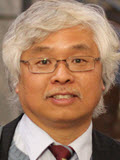
ASCE has honored Ning Lu, Ph.D., F.EMI, F.ASCE, with the 2017 Maurice A. Biot Medal for his outstanding contributions to the fundamental understanding of the mechanics of unsaturated porous materials.
The Maurice A. Biot Medal was established to recognize the lifetime achievement of Dr. Maurice A. Biot, and is awarded to an individual who has made outstanding research contributions to the mechanics of porous materials.
For more than 25 years, Lu has consistently contributed to the field with his outstanding understanding of multiphase poromechanics, geohazards including expansive clays and rainfall-induced landslides, and fluid and heat flows in porous media. His involvement in unsaturated soil mechanics has changed the landscape of what was historically a field too reliant on empiricism and questionable theoretical underpinnings. His critical analysis of matric suction as a stress state variable, along with his introduction of the suction stress characteristic curve for capturing laboratory approaches for measuring unsaturated soil behavior, have sparked an entirely new research direction with the potential to finally unify saturated and unsaturated soil behavior within the classical effective stress framework.
His work has also found direct application in the analysis of the stability of slopes in unsaturated soils, and in developing an understanding of the mechanisms responsible for the initiation of shallow rainfall-induced landslides.
Lu Receives the ASCE 2017 Ralph B. Peck Medal
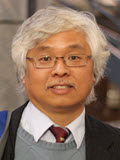
Landslide Case Study Researcher Receives 2017 Ralph B. Peck Award
The Ralph B. Peck Award is presented for outstanding contributions to the geotechnical engineering profession through the publication of a thoughtful, carefully researched case history or histories, or the publication of recommended practices or design methodologies based on the evaluation of case histories.
ASCE has honored Ning Lu, Ph.D., F.EMI, F.ASCE, with the 2017 Ralph B. Peck Award for his multiyear case study monitoring the subsurface hydrological and mechanical conditions leading to landslide occurrence on the coastal bluffs between Seattle and Everett, WA, and for using the data collected to develop a new hydromechanical framework for slope-stability analysis.
Illangasekare wins international prize for groundwater research
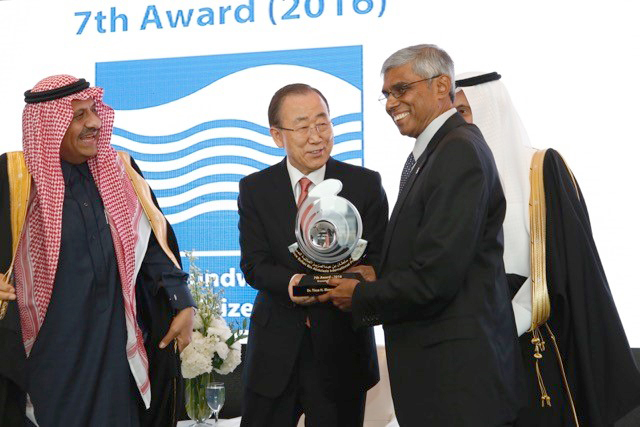
Tissa Illangasekare, distinguished chair and professor of civil and environmental engineering at Colorado School of Mines, who received the Groundwater Prize for the Prince Sultan Bin Abdulaziz International Prize for Water (PSIPW), one of the most prestigious awards for water research and the highest international honor in the field of groundwater.
Established in 2002, PSIPW is a biannual international award that highlights innovation by scientists, inventors and organizations in five water-related fields that contribute to the sustainable availability of potable water and the alleviation of water scarcity throughout the world. The prize organization is headquartered at the Prince Sultan Research Center for Environment, Water and Desert at King Saud University in Riyadh, Saudi Arabia.
Illangasekare was honored for his work to improve the fundamental understanding of fluid flow and chemical transport in porous media through innovative multi-scale experimentation and modeling. His work has led to the reliable prediction of the long-term fate of pollutants in groundwater systems. Most recently, Illangasekare has focused on problems in the development of technologies for secure storage of CO2 in deep geologic formations, which is expected to reduce atmospheric loading of greenhouse gases that contributes to global warming.
Speaking at the U.N. ceremony, Illangasekare emphasized the importance of groundwater research and an interdisciplinary approach to solutions. “Groundwater is 30.1 percent of the freshwater in the world and is the most extracted natural resource,” he said. “The groundwater problems of the coming decades are going to be driven by continually increasing demand, climate change, sea-level rise, chemical and natural pollutants, and issues of energy-water-food nexuses.”
Illangasekare the recipient of the American Geophysical Union’s 2015 Langbein Lecture award.

On June 29, 2015, American Geophysical Union announced that Professor Tissa H. Illangasekare is the recipient of the 2015 Langbein Lecture award.
The Walter Langbein Lecture honors the life and work of hydrologist, Walter B. Langbein. The Langbein Lecture is the premier scientific activity of the Hydrology section held during the AGU Fall Meeting. The Langbein Lecture is webcast and made available as an archived presentation on the AGU website.
The Langbein Lecture is also a part of the Bowie Lecture series, which was inaugurated in 1989 to commemorate the 50th presentation of the William Bowie medal, which is AGU’s highest honor and named for its first president. Langbein is a past recipient of the William Bowie medal.
The Walter B. Langbein Lecture Award is given for lifetime contributions to the science of hydrology and/or for unselfish cooperation in hydrologic research. Additional considerations may be given for candidates renown as a lecturer and/or as an educator. A list of past Langbein lecturers is available on the Hydrology section website.
The 2015 lecture by Illangasekare can be accesses through the following link.
European Geological Union’s Henry Darcy Medal 2012
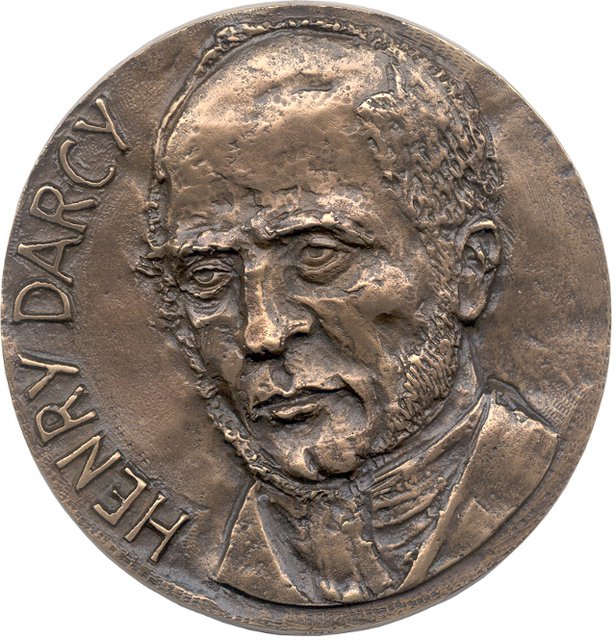
The 2012 Henry Darcy Medal is awarded to Tissa H. Illangasekare for fundamental contributions to engineering hydrology and exceptional support to the hydrological community.
This medal was established by the Hydrological Sciences Division in recognition of the scientific achievements of Henry Darcy. It is awarded to individuals in recognition of their outstanding scientific contributions in water resources research and water resources engineering and management.
Illangasekare elected to Sri Lanka’s academy of sciences
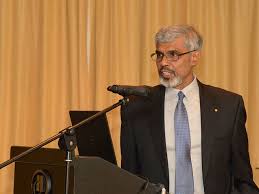
Tissa Illangasekare, AMAX Distinguished Chair of Environmental Sciences and Engineering and professor of civil and environmental engineering at Colorado School of Mines, has been inducted into the National Academy of Sciences of Sri Lanka.
NASSL is a high-level, nongovernmental scientific body that provides independent advice to the Sri Lankan government on policy matters related to science and technology and promotes the advancement of scientific knowledge.
Admission into the academy is highly selective; scientists who have achieved excellence in their respective scientific or technological fields are nominated by current fellows for consideration. As of 2016, there were about 125 fellows worldwide.
Sharp named Kavli Fellow of the National Academy of Science

Jonathan (Josh) Sharp, Associate Professor of Civil and Environmental Engineering and Director of the Hydrologic Science and Engineering Program at Colorado School of Mines was named a Kavli Fellow of the National Academy of Science. Sharp was invited to participate in the U.S. Kavli Frontiers of Science symposium in February of 2018. This National Academy of Science symposium is designed to encourage collaboration between distinguished young scientists.
Selected by a committee of Academy members, attendees are young researchers who have already made recognized contributions to science, including recipients of major national fellowships and awards and who have been identified as future leaders in science.